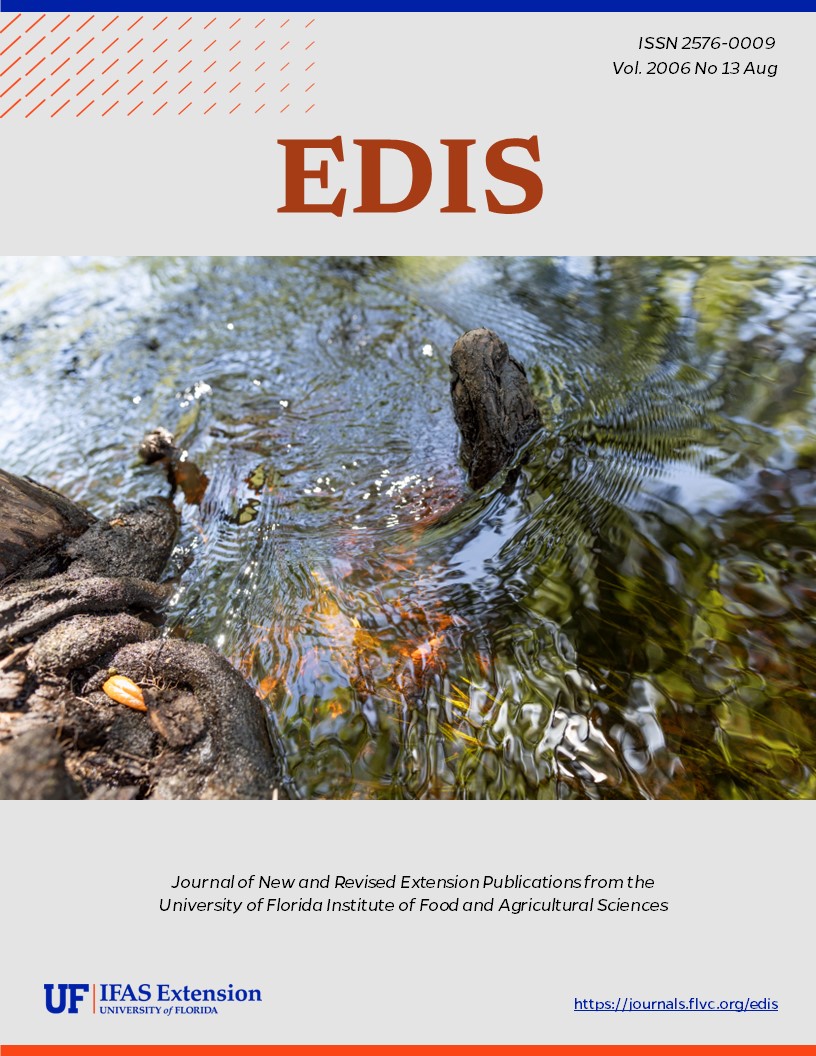Resumen
SL-235 is a 5-page illustrated fact sheet by Chris Wilson, Brian Boman, Ed Stover, Janet Bargar and Jack Hebb. This document summarizes the results from a study evaluating the effectiveness of turning sprayer nozzles off at row ends as a proposed best management practice for preventing non-target deposition of pesticides in surface water connections such as irrigation and drainage ditches. It also estimates direct deposition on ground surfaces that translate into wasted product, as well as another potential source of surface water contamination through surface water runoff. Includes references. Published by the UF Department of Soil and Water Sciences, March 2006.
Citas
Boman, B.J., P.C. Wilson, and J.W. Hebb (eds). 2000. Water Quality/Quantity BMPs for Indian River Area Citrus Groves. Florida Department of Environmental Protection, Tallahassee, FL, 167 pp.
Fox, R.D., D.L. Reichard, R.D. Brazee, C.R. Krause and F.R. Hall. 1993. Downwind residues from spraying a semi-dwarf apple orchard. Transactions of the American Society of Agricultural Engineers, 36:333-340. https://doi.org/10.13031/2013.28344
Hobson, P.A., P.C. Miller, P.J. Walkgate, C.R. Tuck and N.M. Western. 1993. Spray drift from hydraulic spray nozzles: the use of a computer simulation model to examine factors influencing drift. Journal of Agricultural Engineering and Research, 54:293-305. https://doi.org/10.1006/jaer.1993.1022
Johnson, D.R. 1995. Drift from orchard airblast applications: integration and summary of 1993- and 1994 field studies (Report no. I95-004). Spray Drift Task Force, Washington, D.C.
Salyani, M. and R.P. Cromwell. 1992. Spray drift from ground and aerial applications. Transactions of the American Society of Agricultural Engineers, 35:1113-1120. http://agricola.nal.usda.gov/ https://doi.org/10.13031/2013.28708
Spray Drift Task Force. 1997. A summary of airblast application studies. 31 May 2002. http://www.agdrift.com/PDF_FILES/airblast.pdf.
Stover, E., D. Scotto, C. Wilson and M. Salyani. 2003. Pesticide spraying in grapefruit: II. Overview of factors influencing spray efficacy and off-target deposition. HortTechnology 13:166-177. https://doi.org/10.21273/HORTTECH.13.1.0166
Walklate, P. J. 1992. A simulation study of pesticide drift from an air-assisted orchard sprayer. Journal of Agricultural Engineering Research, 51:263-283. https://doi.org/10.1016/0021-8634(92)80042-Q
Wilson, P.C., E. Stover, and B. Boman. 2004. Minimizing direct deposition of pesticides into waterways associated with Indian River citrus production. HortTechnol. 14(4):545-550. https://doi.org/10.21273/HORTTECH.14.4.0545

